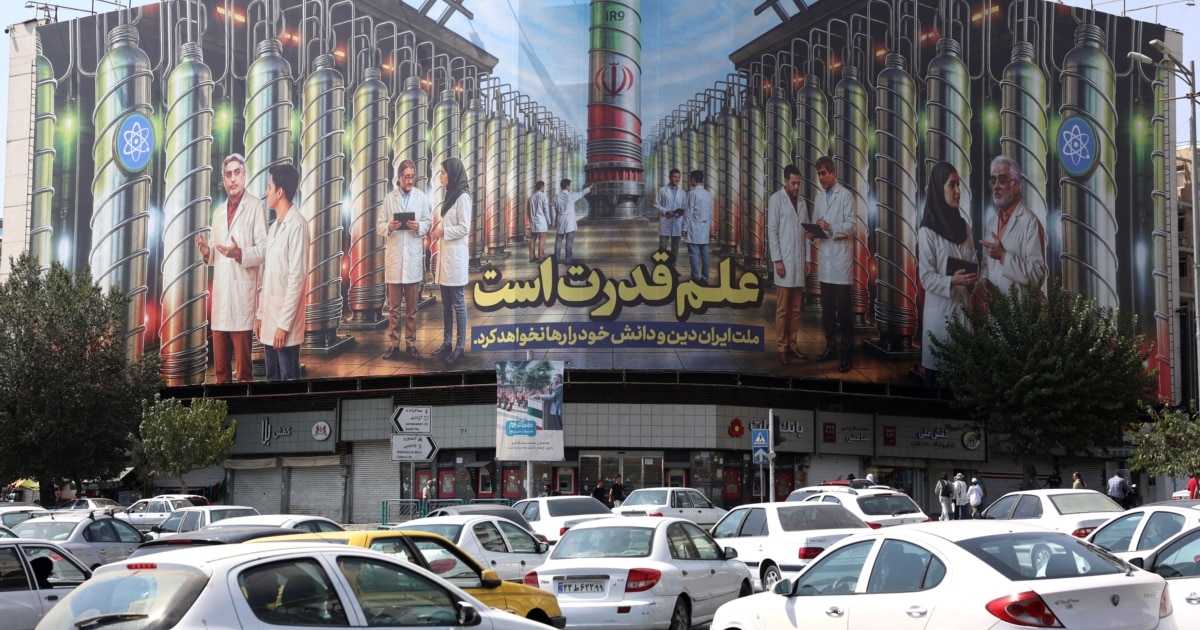Iranian Vice President Mohammad Reza Aref has vowed that Tehran will not “bow to pressure” despite the impending triggering of a UN mechanism that would restore sanctions over its alleged “grave noncompliance” of the 2015 nuclear deal.
“We are not volunteering for sanctions, but this time, too, the Iranian people will neither back down nor bow to pressure,” Vice President Mohammad Reza Aref said on August 31 during a weekly cabinet meeting, according to the ISNA news agency.
His comments come as Iran weighs its response to a decision by Britain, France, and Germany — known as the European 3 (E3) — on August 28 to formally initiate the “snapback” process, which is due to become effective in 30 days, leaving open the possibility of further negotiations.
The E3 foreign ministers said, “We will use the 30-day period to continue engaging with Iran regarding our extension offer or any meaningful diplomatic efforts to restore its compliance with commitments.”
They emphasized that they “share the fundamental objective that Iran must never seek, acquire, or develop a nuclear weapon.
Despite the defiant talk, Tehran may have few alternatives than to negotiate in hopes of fending off the sanctions, given the state of its economy and isolation from much of the world economy following previous rounds of sanctions.
Aref questioned whether the E3 nations have the legal authority to trigger snapback mechanism at the UN Security Council.
“Of course, if the snapback is implemented, the necessary decisions will be taken accordingly,” Aref added, without offering specifics.
EU foreign policy chief Kaja Kallas on August 29 rejected Tehran’s assertion that the E3 did not have the authority to trigger the mechanism and said the 30-day window before the sanctions took effect provided an “opportunity” for diplomacy.
“We have these 30 days to sort things out,” she told reporters.
The action puts Iran at risk of facing renewed sanctions that had been removed as part of the 2015 landmark nuclear accord, formally known as the Joint Comprehensive Plan of Action (JCPOA).
Western nations have justified the reimposition of sanctions because of what they say are repeated Iranian violations of the 2015 accord.
The deal was designed to stop Iran from developing a nuclear weapon — something Tehran has long insisted it is not pursuing. It outlines strict rules for independent monitoring of Iran’s nuclear activities and imposes caps on both the amount of uranium it can possess and the level to which it may be enriched.
Iran started to roll back its commitments after the United States withdrew from the deal in 2018 and reimposed sanctions. Iran has progressively accelerated its nuclear program since, now enriching uranium to 60 percent purity — far above the 3.67 percent cap under the JCPOA.
Iran suspended cooperation with the International Atomic Energy Agency in July in response to the US and Israeli bombing of its key nuclear sites in Fordow, Isfahan, and Natanz. One of the conditions that the E3 had set to delay the process was for Tehran to resume full cooperation with the UN nuclear watchdog before the end of August.
The sanctions related to the nuclear deal and other issues have severely damaged the Iranian economy and often led to street unrest amid rising prices and shortages of crucial goods and energy supplies. They have also stymied Iranian industry as important sectors have been cut off from replacement parts and other resources.
With reporting by Reuters and AFP
